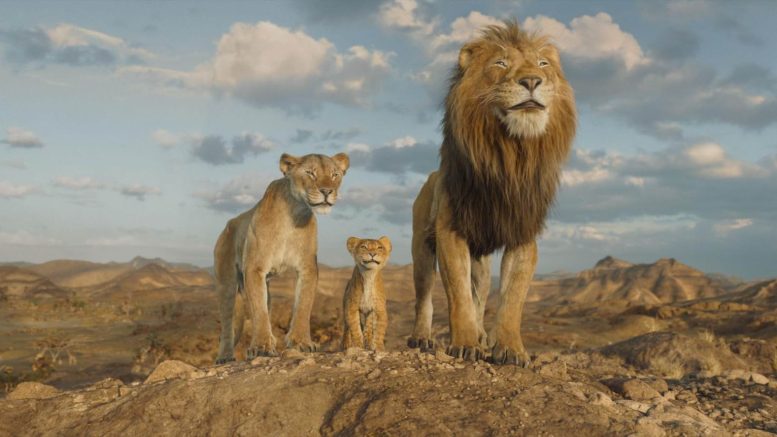If you enjoyed the 1994 Disney movie The Lion King for its charming 2D animation, catchy musical numbers and heartwarming coming-of-age story, then you might be disappointed by its 2024 live action prequel-sequel, Mufasa: The Lion King. Despite a valiant attempt at expanding the iconic film’s characters, this rendition struggles to capture the magic of animation.
Directed by Barry Jenkins, who also directed the multi award-winning film Moonlight (2016), Mufasa: The Lion Kingtells the origin stories of Mufasa, Simba’s father and Scar, Simba’s villainous uncle.
In this prequel, a young Mufasa is separated from his family by a flood and finds refuge with another pride, forming a bond with Taka (later known as Scar), the pride’s king’s son. Years later, Mufasa and Taka are driven away from their home by evil albino lions, and embark on a journey to Milele, a mythical land where all animals live in harmony. However, tension rises as they compete for power and a lioness’s love.
The movie’s realistic animations and stunning depictions of the Tanzanian landscape reflect the immense effort poured into its visual effects. However, the photorealistic talking and singing animals create an uncanny, unsettling effect. Additionally, the overall look and feel of the animals reminded me of CGI animations of dinosaurs I see in paleontology museums, which is unlike the colourful, whimsical and lovable characters from the original film.
As an ethnomusicology enthusiast, I enjoyed the incorporation of African choral music with Swahili and Zulu lyrics in the soundtrack, but most of the songs in the film were generic and unremarkable. I expected songs on par with “Circle of Life” and “Can You Feel the Love Tonight,” but instead there were numbers like “I Always Wanted A Brother” where the word brother is repeated 24 times in a three and a half minute song. While talented voice actors such as Aaron Pierre and Tiffany Boone delivered strong performances, the lyrics often felt vague and repetitive.
The story employs an embedded narrative, with Rafiki recounting Mufasa’s tale to Kiara, Mufasa’s granddaughter. Commentary from Timon and Pumbaa frequently interrupts the narrative, disrupting the film’s flow. If anything, it came across as a desperate attempt to stuff previous characters into the film even though they do not add any substance to the story.
Lastly, some online users have also pointed out issues with the plot. For example, in this adaptation Mufasa has no royal blood, contradicting the whole premise of the “one true lion king” as established by the original film. Mufasa also has a highly sensitive sense of smell, yet he does not detect the scent of the evil lion after he had rubbed manes and formed an alliance with Taka. Having said that, a film critique from Screen Rant did point out that this movie explains why prey animals chose a lion to be their king — Mufasa successfully united everyone against the evil lions.
Mufasa: The Lion King received mixed reviews online, receiving a 6.7 out of 10 rating by IMDb and only 55 per cent on Rotten Tomatoes, but it still made a whopping $342.5 million as of New Year’s Day, surpassing its $200 million budget. Perhaps as long as they are still profitable, Disney will continue to churn out live action films and spin-offs that are far cries from their beloved originals.



